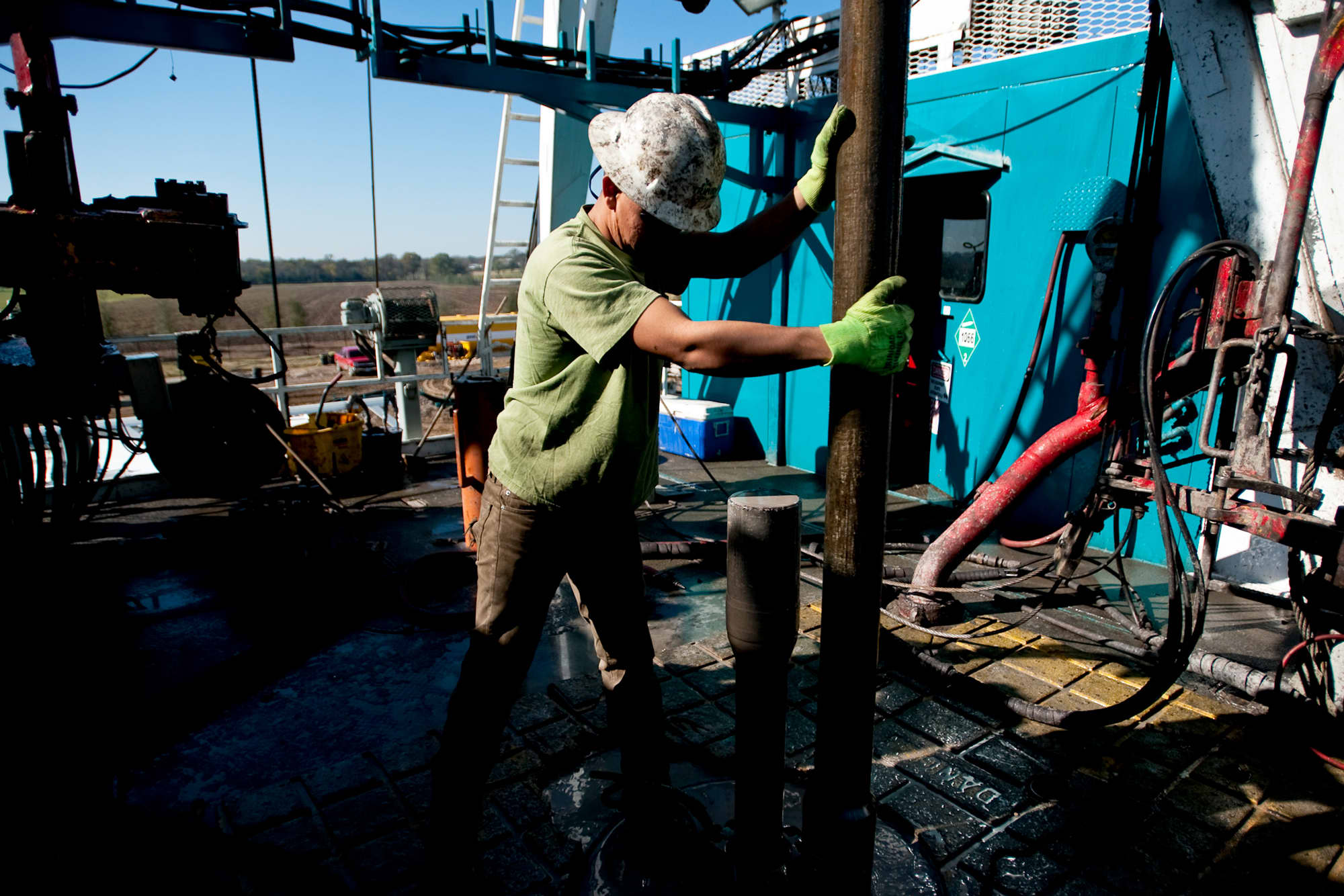A worker on a Chesapeake Energy natural gas rig in Fort Worth, Texas
Matt Nager | Bloomberg | Getty Images
Chesapeake Energy, the poster child of the U.S. shale revolution, filed for bankruptcy protection on Sunday. The move comes as the company and industry more broadly has been rocked by a drop in oil and gas prices amid the coronavirus pandemic.
The heavily indebted company has been in trouble for some time, and in May said that it had concerns regarding its long-term viability.
Chesapeake said that $7 billion in debt will be wiped out through the restructuring. The company has secured $925 million in debtor-in-possession financing in order to continue operations, as well as an additional $600 million commitment for new equity once the company emerges from bankruptcy.
Franklin Resources and Fidelity are among the biggest creditors, according to people close to the company, and they will be among the primary equity holders following the company’s restructuring. The company will continue operations at a much reduced capacity, with a handful of gas rigs and no oil rigs, according to those familiar with the company’s plans.
“We are fundamentally resetting Chesapeake’s capital structure and business to address our legacy financial weaknesses and capitalize on our substantial operational strengths,” CEO Doug Lawler said in a statement.
Chesapeake Energy was founded in 1989 by Aubrey McClendon. An early pioneer of horizontal drilling, he built the company into a key player in the U.S. gas industry. At its peak, Chesapeake had 175 operating rigs, with operations across the U.S. including in Texas, Louisiana, Pennsylvania and Ohio.
But the company took on a lot of debt to fuel its rapid expansion, and from 2010 to 2012 spent $30 billion more in drilling and leasing than it made from its operations.
McClendon was ultimately ousted from the company in 2013, and in 2016 was indicted on federal charges of conspiring to rig bids for oil and natural gas leases for a new venture he had started. The following day, McClendon perished in a car crash.
When current CEO Dough Lawler succeeded him, the company had nearly as much debt as Exxon and Chevron combined.
“Over the last several years, our dedicated employees have transformed Chesapeake’s business — improving capital efficiency and operational performance, eliminating costs, reducing debt and diversifying our portfolio,” Lawler said in a statement. “Despite having removed over $20 billion of leverage and financial commitments, we believe this restructuring is necessary for the long-term success and value creation of the business.”
Chesapeake’s downturn is not unique. Whiting Petroleum is among the other once great drillers that couldn’t survive a historic plunge in oil prices. The company filed for bankruptcy protection on April 1.
Subscribe to CNBC PRO for exclusive insights and analysis, and live business day programming from around the world.
